Parul University B.Tech Admissions 2025
Registrations Deadline- 12th June | India's youngest NAAC A++ accredited University | NIRF rank band 151-200 | 2200 Recruiters | 45.98 Lakhs Highest Package
JEE Main Formulas 2025 - JEE Mains is the competitive entrance exams for engineering programs. To do well on this exam, you must understand the fundamental concepts and formulas of Mathematics, Physics, and Chemistry. Aspirants preparing for the JEE Mains can check the JEE Main formulas 2025 available on this page. JEE Mains is Conducted by the National Testing Agency (NTA), this exam evaluates a candidate's proficiency in Physics, Chemistry, and Mathematics. Since there are many formulas in these three subjects, candidates need a way to recall them for revision purposes. JEE Main important formulas in Math, Physics, and Chemistry are integral to calculating answers for numerical questions.
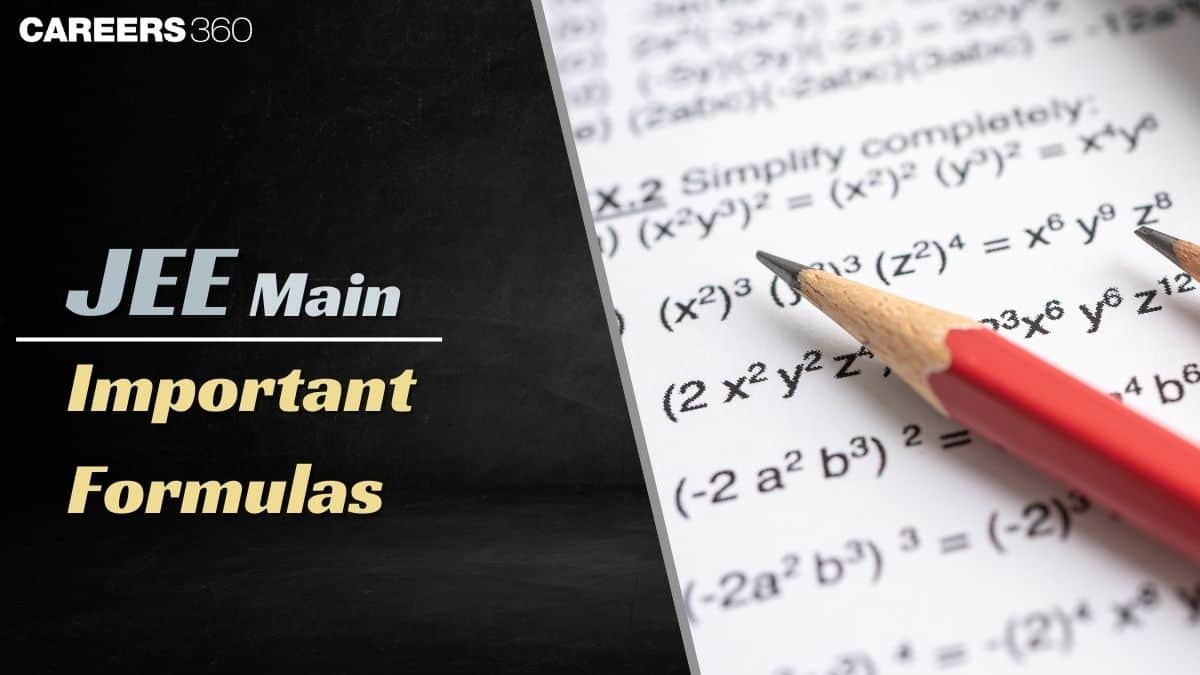
Candidates must make a handy note of all important formulas to revise frequently. Candidates must have a good command of each topic and the formulas to crack the JEE Main 2025 exam to ace the test. Through this article, students can find the provided JEE Main formulas for Maths, Physics, and Chemistry. Knowing important formulas in depth can help you solve problems fast and accurately, which is important for scoring well in JEE Main.
The exam is divided into two main sections:
Section A: The quizzes contained in this section are 20 MCQs for each course. What the MCQ requires is four options and only one of them is the right answer.
Section B: This section has 5 numerical value questions for each of the subject areas, and the candidate only has to answer all five of these. These numerical value questions have to be answered accurately, sometimes to the second decimal place.
Aspirants preparing for JEE Mains must remember that along with concepts one needs to revise and remember the formulas, which are very important while solving any problems. As JEE Main Physics formulas are given below, these formulas need to be memorized daily as direct questions and formulas are asked in exams.
Below are a few important formulas for JEE Main Physics.
Newton’s first law of motion
If
Work, Energy, and Power for Rotating Body
Work-
For translation motion
So for rotational motion
2. Rotational kinetic energy-
The energy of a body has by virtue of Its rotational motion is called its rotational kinetic energy.
3. Power =Rate of change of kinetic energy
For translation motion
So for rotational motion
Or
Newton's Law of Gravitation
Or,
Where
Gravitational Potential energy at a point

Then gravitational force on test mass m at a distance r from M is given by
And the amount of work done in bringing a body from
And this is equal to gravitational potential energy
SoU
Note- U is always negative in the gravitational field because Force is attractive in nature.
Means As the distance r increases U becomes less negative
l.e U will increase as r increases
And for
Gravitational Potential energy of discrete distribution of masses
Change of potential energy
If a body of mass
Then Change of potential energy is given as
If
Le To decrease potential energy of a body we have to bring that body closer to the earth.
The relation between Potential and Potential energy
Where
The gravitational potential energy at height 'h' from the earth's surface
Using
Power in AM waves
If
and
then Power dissipated in any circuit.
So Carrier Power will be given as
Similarly, Total Power of sidebands will be given as
Where
And this gives Total power of AM wave as
where
Note-maximum power in the AM wave without distortion Occurs when
Le
Frequency modulation
Frequency modulation
- Frequency modulation deviation-The The amount by which carrier frequency is varied from its unmodulated value.
The deviation is made proportional to the instantaneous value of the modulating voitage.
- Value of frequency deviation
- The modulation index of frequency modulation-
It is defined as the ratio of maximum frequency deviation to the modulating frequency.
Candidates while studying the chemistry, they need to revise and practice the chemical equations and symbols, to some chemistry is tough subject but when candidates practices chemical equations, revises the properties, formulas and symbols they will have command over the subject Candidates can check the JEE Main Chemistry formulas below
Physical Properties of Alkali Metals
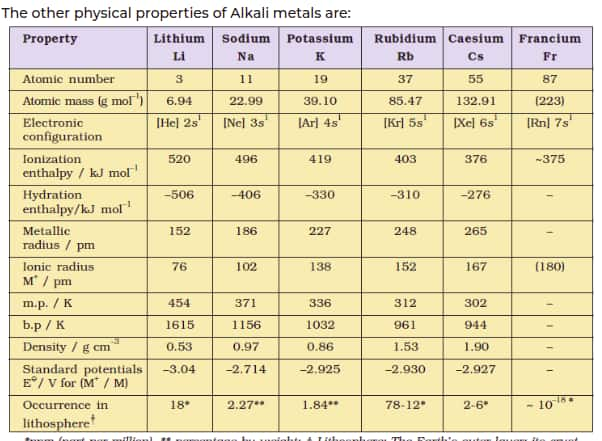
Molar Conductance
![]()
Equivalent Conductance
Method of Preparation of Carboxylic Acid
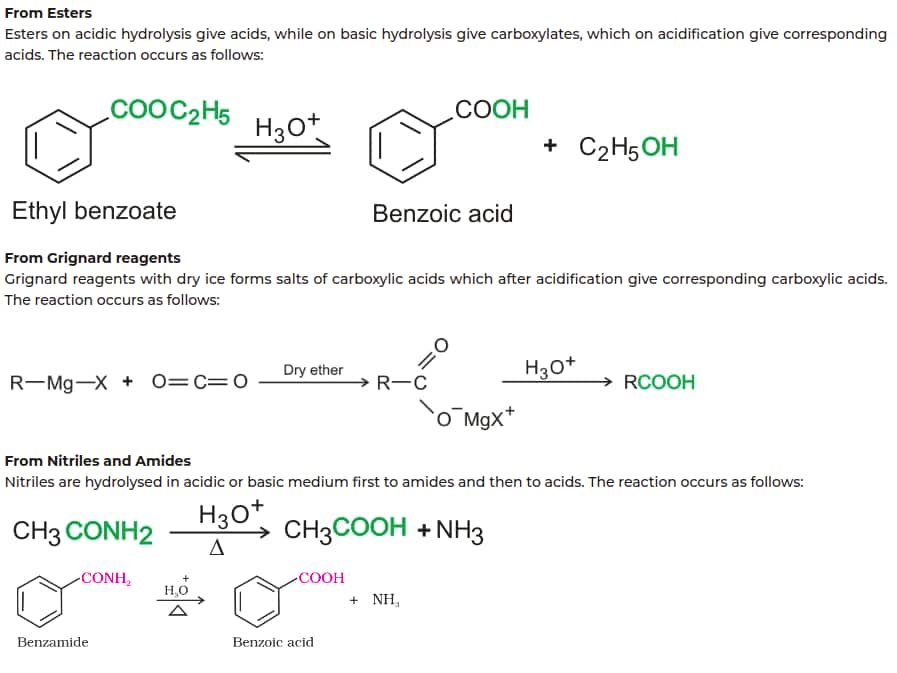
Kinetic Energy
If at a given temperature,
where
If the
then the average kinetic energy is given by :
where v is ghen by
This 'v' is known as root-mean-square speed
Molarity(M): No. of moles of solute/ volume of solution in liter
Molality (m): No. of moles of solute/weight of solvent in kg
Candidates must go through all the formulas and practice the mathematical problems. Without formulas you cannot solve any problem though you know how to solve it. Revising the formulas daily is very important. Here we have provided Mathematics formulas for JEE Mains.
Equation of Circle
Centre-Radius Form
Registrations Deadline- 12th June | India's youngest NAAC A++ accredited University | NIRF rank band 151-200 | 2200 Recruiters | 45.98 Lakhs Highest Package
Ranked #42 among Engineering colleges in India by NIRF | Highest Package 1.3 CR , 100% Placements

Let
Using the distance formula, we have
i.e.
If the centre of the circle is the origin or
i.e.
- General equation of a circle
The equation of a circle with centre at (
Which is of the form :
This is known as the general equation of the circle.
Line and Circle
S is a circle with center O and radius r , and L is a straight line in the plane of the circle.
Equation of circle
Equation of line L:
To find their point(s) of intersection, we can solve these equations simultaneously
Exponential Limits
(i)
Proof:
[using Taylor series expansion of
(ii)
In General, if
(a)
(b)
Logarithmic Limits
To evaluate the Logarithmic limit we use the following results:
Proof:
[using Taylor series expansion of
In General, if
The formula of molecular mass in terms of vapor density is
Molecular mass = 2 * vapor density
Revision is the best way to remember all the formulas. Practice more questions based on formulas and revise the formulas on a daily basis.
Yes, you can derive the formula during the exam but it is very time-consuming so candidates must learn all the formulas to save time during the exam.
General formula for alkanes is CnH2n+2 , alkenes is CnH2n and for alkynes is C
nH2n-2 respectively.
With 64 percentile and a CRL rank around 5.4 lakh in JEE Mains 2025, getting admission in any NIT or IIIT is very unlikely, especially in the general category. Most NITs close their admissions below a rank of 1.5 lakh, and even the newer NITs usually fill seats by around 3 to 3.5 lakh rank. IIITs generally have closing ranks below 3 lakh.
Instead, you can try for state government engineering colleges through your state counselling or look for private engineering colleges that have lower cutoff ranks. Another option is to explore management quota or direct admission routes if available.
With a JEE B.Arch rank of 30,000, getting admission in DCRUST is not possible because their cutoff ranks are much lower and they mainly consider NATA scores, not JEE Paper 2.
You can try these options instead:
Apply to other colleges accepting NATA scores.
Consider management quota seats in private colleges.
Prepare and appear for NATA exam for better chances.
With a JEE Advanced rank of 20,340, your son can likely get admission in newer IITs like IIT Bhubaneswar, Gandhinagar, Ropar, Mandi, Indore, Patna, or Jodhpur, mostly in less competitive branches.
Top IITs and popular branches like CS or ECE are unlikely.
Hello Hemalakshmi,
No, JEE Mains is not mandatory just because you are a resident of Pondicherry. Nevertheless, if you intend to gain admission into most engineering colleges/ Institutions across India including those in Pondicherry, you will most likely have to take and qualify in JEE Mains or any entrance tests which may be approved by the institution or college as the case may be. Certain colleges might also have their specified entrance criteria or admission by way of state-level entrance exams or management quota, but JEE Mains is the extremely primary national level engineering entrance and is thus widely used.
Hello Aspirant,
Yes, to be under Foreign Nationals DASA Counselling 2025, you must have done atleast 2 years of education abroad (outside India) within 8 years to the time of admission. This is a pre-requisite eligibility for acceptance under Foreign Nationals category.
A flight attendant ensures passenger safety and comfort during flights. Key duties include conducting safety checks, assisting passengers, serving food and drinks, and managing emergencies. They must be well-trained in safety procedures and customer service. A high school diploma is typically required, followed by rigorous training to qualify for the role.
A Flight Engineer monitors and operates an aircraft’s complex systems like engines, fuel, and hydraulics during flight, ensuring optimal performance and safety. They assist pilots with technical issues, conduct inspections, and maintain records. This role requires strong technical knowledge, problem-solving, and communication skills. Training usually involves a degree in aviation or aerospace engineering and specialised certification.
An Aircrew Officer operates and navigates aircraft, ensuring safe flights and compliance with aviation regulations. Key duties include managing flight systems, conducting pre- and post-flight checks, and adhering to safety standards. The role typically requires working five days a week, with around 120 flight hours monthly. Employment may be contractual or permanent, depending on the airline.
An aerospace engineer designs, develops, tests, and maintains aircraft, spacecraft, and related systems. They apply physics and engineering principles to improve aerospace technologies, often working in aviation, defence, or space sectors. Key tasks include designing components, conducting tests, and performing research. A bachelor’s degree is essential, with higher roles requiring advanced study. The role demands analytical skills, technical knowledge, precision, and effective communication.
An air hostess, or flight attendant, ensures passenger safety and comfort during flights. Responsibilities include safety demonstrations, serving meals, managing the cabin, handling emergencies, and post-flight reporting. The role demands strong communication skills, a calm demeanour, and a service-oriented attitude. It offers opportunities to travel and work in the dynamic aviation and hospitality industry.
An aeronautical engineer designs, develops, tests, and maintains aircraft and related systems. They work on components like engines and wings, ensuring performance, safety, and efficiency. The role involves simulations, flight testing, research, and technological innovation to improve fuel efficiency and reduce noise. Aeronautical engineers collaborate with teams in aerospace companies, government agencies, or research institutions, requiring strong skills in physics, mathematics, and engineering principles.
A Safety Manager ensures workplace safety by developing policies, conducting training, assessing risks, and ensuring regulatory compliance. They investigate incidents, manage workers’ compensation, and handle emergency responses. Working across industries like construction and healthcare, they combine leadership, communication, and problem-solving skills to protect employees and maintain safe environments.
An airline pilot operates aircraft to transport passengers and cargo safely. Responsibilities include pre-flight planning, in-flight operations, team collaboration, and post-flight duties. Pilots work in varying schedules and environments, often with overnight layovers. The demand for airline pilots is expected to grow, driven by retirements and industry expansion. The role requires specialized training and adaptability.
Welding Engineer Job Description: A Welding Engineer work involves managing welding projects and supervising welding teams. He or she is responsible for reviewing welding procedures, processes and documentation. A career as Welding Engineer involves conducting failure analyses and causes on welding issues.
A career as Transportation Planner requires technical application of science and technology in engineering, particularly the concepts, equipment and technologies involved in the production of products and services. In fields like land use, infrastructure review, ecological standards and street design, he or she considers issues of health, environment and performance. A Transportation Planner assigns resources for implementing and designing programmes. He or she is responsible for assessing needs, preparing plans and forecasts and compliance with regulations.
An architect plans and designs buildings, ensuring they are safe, functional, and aesthetically pleasing. They collaborate with clients, engineers, and contractors throughout the construction process. Key skills include creativity, design software proficiency, and knowledge of building codes. In India, a 5-year B.Arch degree and registration with the Council of Architecture are required to practise professionally.
Having a landscape architecture career, you are involved in site analysis, site inventory, land planning, planting design, grading, stormwater management, suitable design, and construction specification. Frederick Law Olmsted, the designer of Central Park in New York introduced the title “landscape architect”. The Australian Institute of Landscape Architects (AILA) proclaims that "Landscape Architects research, plan, design and advise on the stewardship, conservation and sustainability of development of the environment and spaces, both within and beyond the built environment". Therefore, individuals who opt for a career as a landscape architect are those who are educated and experienced in landscape architecture. Students need to pursue various landscape architecture degrees, such as M.Des, M.Plan to become landscape architects. If you have more questions regarding a career as a landscape architect or how to become a landscape architect then you can read the article to get your doubts cleared.
Urban Planning careers revolve around the idea of developing a plan to use the land optimally, without affecting the environment. Urban planning jobs are offered to those candidates who are skilled in making the right use of land to distribute the growing population, to create various communities.
Urban planning careers come with the opportunity to make changes to the existing cities and towns. They identify various community needs and make short and long-term plans accordingly.
A plumber installs, maintains, and repairs water, gas, and waste systems in homes and buildings. Their duties include fixing leaks, installing fixtures, testing systems, ensuring safety compliance, and working with other professionals on projects. They also document repairs and may supervise apprentices. Plumbers play a key role in ensuring public health and the smooth functioning of essential utilities.
Individuals who opt for a career as construction managers have a senior-level management role offered in construction firms. Responsibilities in the construction management career path are assigning tasks to workers, inspecting their work, and coordinating with other professionals including architects, subcontractors, and building services engineers.
Individuals who opt for a career as an environmental engineer are construction professionals who utilise the skills and knowledge of biology, soil science, chemistry and the concept of engineering to design and develop projects that serve as solutions to various environmental problems.
Individuals who opt for a career as geothermal engineers are the professionals involved in the processing of geothermal energy. The responsibilities of geothermal engineers may vary depending on the workplace location. Those who work in fields design facilities to process and distribute geothermal energy. They oversee the functioning of machinery used in the field.
Energy efficiency engineering is a broad field of engineering which deals with energy efficiency, energy services, facility management, plant engineering, and sustainable energy resources. Energy efficiency engineering is one of the most recent engineering disciplines to emerge. The field combines the knowledge and understanding of physics, chemistry, and mathematics, with economic and environmental engineering practices. The main job of individuals who opt for a career as an energy performance engineer is to find the most efficient and sustainable path to operate buildings and manufacturing processes.
Individuals who opt for a career as energy performance engineers apply their understanding and knowledge to increase efficiency and further develop renewable sources of energy. The energy efficiency engineers also examine the use of energy in those procedures and suggest the ways in which systems can be improved.
A geologist attempts to comprehend the historical backdrop of the planet we live on, all the more likely to anticipate the future and clarify current events. He or she analyses the components, deployments, results, physical characteristics, and past of the planet. A geologist examines the landforms and landscapes of the earth in relation to the geology, climatic, and human processes that have shaped them.
A geologist studies earth procedures, for example, seismic tremors, avalanches, floods, and volcanic eruptions to review land and draw up safe structure plans. When he or she researches earth materials, explores metals and minerals, yet in addition search for oil, petroleum gas, water, and strategies to extricate these.
A career as a Petroleum engineer is concerned with activities related to producing petroleum. These products can be in the form of either crude oil or natural gas. Petroleum engineering also requires the exploration and refinement of petroleum resources. Therefore, a career as a petroleum engineer comes up with oil and gas onshore jobs. There are also desk jobs in the petroleum industry. In layman’s terms, a petroleum engineer is a person who finds the best way to drill and extract oil from oil wells. Individuals who opt for a career as petroleum engineer also tries to find new ways to extract oil in an efficient manner.
A career as Transportation Planner requires technical application of science and technology in engineering, particularly the concepts, equipment and technologies involved in the production of products and services. In fields like land use, infrastructure review, ecological standards and street design, he or she considers issues of health, environment and performance. A Transportation Planner assigns resources for implementing and designing programmes. He or she is responsible for assessing needs, preparing plans and forecasts and compliance with regulations.
A career as a civil engineer is of great importance for the infrastructural growth of the country. It is one of the most popular professions and there is great professional as well as personal growth in this civil engineering career path. There is job satisfaction in this civil engineering career path, but it also comes with a lot of stress, as there are multiple projects that need to be handled and have to be completed on time. Students should pursue physics, chemistry and mathematics in their 10+2 to become civil engineers.
A career as a Transportation Engineer is someone who takes care of people's safety. He or she is responsible for designing, planning and constructing a safe and secure transportation system. The transportation sector has seen a huge transformation and is growing day by day and improving every day.
As a Transport Engineer, he or she needs to solve complex problems such as accidents, costs, traffic flow, and statistics. A Transport Engineer also collaborates for projects with some other companies.
A Loco Pilot operates trains, ensuring safe and timely transport of passengers or goods. Starting as an Assistant Loco Pilot, one can progress to senior roles with experience. The job demands technical knowledge, focus, and adherence to safety protocols. It involves coordination with train staff and may require working long hours under pressure.
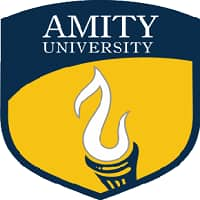
Among Top 30 National Universities for Engineering (NIRF 2024) | 30+ Specializations | AI Powered Learning & State-of-the-Art Facilities

Highest CTC - 82 LPA | Average CTC - 18.25 LPA | NAAC Grade A+ Accredited
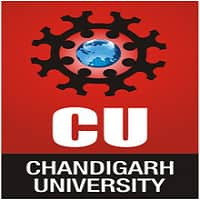
Ranked #1 Among all Private Indian Universities in QS Asia Rankings 2025 | Scholarships worth 210 CR
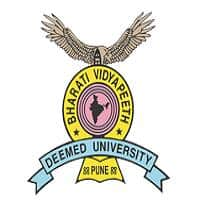
NAAC A++ Grade | Category-I Deemed to be University Grade by UGC
NAAC A+ Grade | Ranked No.1 Private University in India (QS World University Rankings 2025)
NAAC A+ Grade | Among top 100 universities of India (NIRF 2024) | 40 crore+ scholarships distributed